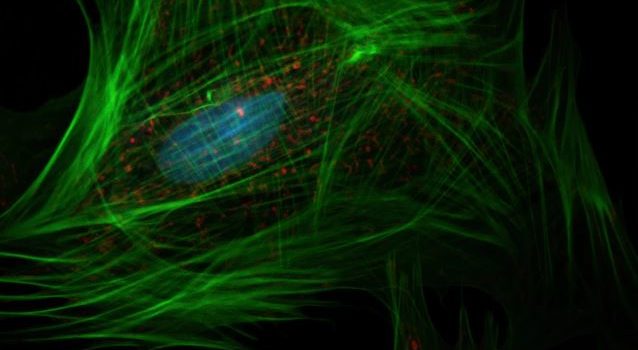

This article is an excerpt from the Shortform summary of "The Immortal Life of Henrietta Lacks" by Rebecca Skloot. Shortform has the world's best summaries of books you should be reading.
Like this article? Sign up for a free trial here .
How can a cell be immortal? What is it about Henrietta Lacks’ cells that made them able to stay alive? How did the HeLa cell line revolutionize research but kill Henrietta Lacks?
The immortal cells are cells taken from Henrietta Lacks that do not die in the laboratory. The cells continue to reproduce indefinitely, which is why the HeLa cell line is still in use today.
Read more about the immortal cells that are laboratory versions of Henrietta Lacks’ cells.
Henrietta’s cancer cells reproduced unlike any other cells in human history, which was why her cancer was so aggressive. But they also changed research forever. Whereas all human cells prior to Henrietta’s died when removed from the human body and placed in a test tube or petri dish, Henrietta’s reproduced consistently and continuously in culture: They were “immortal.”
Aliens Colonizing Henrietta Lacks’ Cells?
Although scientists were able to discover the root cause of Henrietta’s cancer, they were at a loss to explain why her cells flourished so incredibly in culture. Henrietta’s Clover relatives, however, had their own theories: Divine punishment for leaving Clover or original sin, or malevolent spirits. Henrietta’s cousin Sadie even wondered whether Henrietta’s insides had been colonized by something from outer space.
Are Immortal Cells Human?
Ironically, some scientists at the time were asking a related question: Were HeLa cells even still human? The scientists argued that HeLa cells, because they’d been reproducing (through cell division) and evolving separately from the human species for so long, had become their own species. (Most scientists dismissed this argument, with one observing that, if Henrietta were still alive and able to provide a sample, her DNA would match HeLa’s.)
Telomere Differences Make Immortal Cells
HeLa cells also contributed to renewed speculation about the possibility of everlasting life. Whereas healthy human cells inevitably died in culture after dividing about fifty times, cancerous cells—as exemplified by HeLa—divided indefinitely. One indication that healthy cells are nearing their end is the progressive shortening of their chromosomes’ “telomeres”—strings of DNA at the end of each chromosome. In the early 90s, a Yale researcher studying HeLa cells discovered that HeLa produces a particular enzyme that prevents the telomeres from shortening, thereby enabling the cell to continue dividing.
Henrietta Lacks’ Mission From God
Skloot stayed in Clover to speak to Gary about the previous day’s events. Shortly after she entered Gary’s home, he handed her a bible and commanded her to read some passages aloud. As she read, Gary told Skloot that Henrietta had been chosen by God to do his work—that she was an angel.
One of the passages referenced the mortality of the physical body and the immortality of the spiritual body. Skloot asked Gary if he thought HeLa was Henrietta’s spiritual body and he nodded. And Skloot suddenly realized how and why some in the Lacks family believed Henrietta was an immortal being anointed by God. Counter-intuitively, that explanation was much simpler than the one McKusick—or any other scientist or doctor—had provided them with. Just like HeLa, angels were immortal, floated through the air, and cured diseases. These parallels were much easier to grasp than explanations involving DNA, HPV, and unusual malignancy.

———End of Preview———
Like what you just read? Read the rest of the world's best summary of Rebecca Skloot's "The Immortal Life of Henrietta Lacks" at Shortform .
Here's what you'll find in our full The Immortal Life of Henrietta Lacks summary :
- How Henrietta's cells became used in thousands of labs worldwide
- The complications of Henrietta's lack of consent
- How the Lacks family is coping with the impact of Henrietta's legacy






